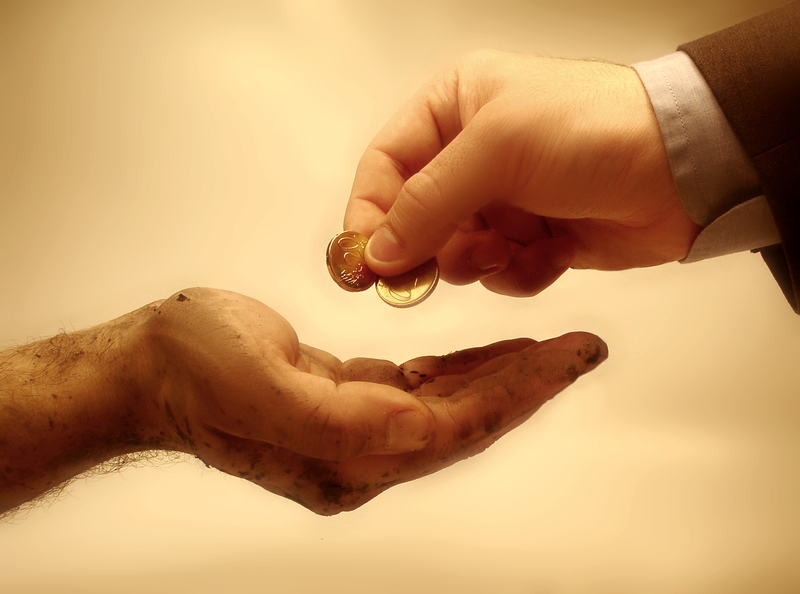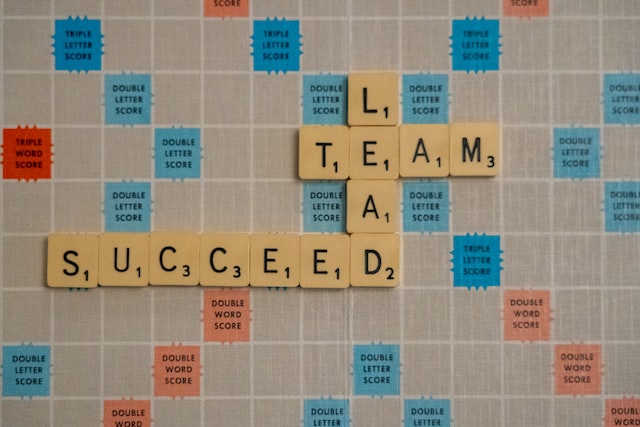The Cost of Control

We love to be in control.
The empowering effect of watching our efforts produce immediate results. The satisfaction of seeing the direct connection between what we do and what we get. It’s deeply satisfying.
But does that desire – to be in control – come at a cost?
Last week, I flew to Orlando for a two-day conference. I flew in Tuesday morning and scheduled my return flight for Wednesday afternoon. My responsibilities at the conference ended Wednesday morning and I was hoping to spend a few hours alone in the hotel, leveraging the quiet time for some strategic thinking.
As I landed on Tuesday morning, I looked at my phone and noticed a meeting got scheduled. It was an important meeting for a project I was working on and it was scheduled for 5:00pm on Wednesday. “There went the quiet time,” I thought, as I called Delta to change my flight to Wednesday at noon, giving me just enough time to land in NY at 2:00pm and drive to the meeting.
Wednesday came and everything proceeded rather smoothly. We boarded the plane and before turning off my phone, I emailed the team to say that I would see them soon.
I waited for the plane to push back from the gate but it didn’t. Silence. No movement.
30 minutes later (it was only 2 minutes but it felt like 30) the pilot got on the intercom:
“There is some weather in New York and JFK is suspending inbound flights for now. We have a wheels-up time of 2:10 so we are going to have everyone deplane, return to the gate, and re-board later.”
Ahhhhhh
“But it’s okay”, I told myself, “I am still scheduled to land at 4:00pm which gives me just enough time to make the meeting. “Stay positive, and productive” I reminded myself.
We deplane, and then re-board an hour late. After about a hundred déjà vu jokes, everyone settles in. Captain gets on. All clear.
I hear the reassuring command of “Flight attendants, please prepare the cabin for take off.” I sit back and relax.
We pull back and head to the runway.
And then we stop.
Intercom. Pilot.
“Well, we had clearance but due to the increased traffic we got pushed back another hour. So we are going to wait here for an hour and take off at 3:00pm.”
The cabin let out a collective groan.
“Okay”, I said to myself, “we are still scheduled to land at 5:00 so I can at least call in.”
3:00pm comes and we take off. All is well.
45 minutes into the flight the intercom goes off.
You see where this is going.
“There was an issue with one of the planes and one runway is shut down. We will be holding in the air for a little, our new arrival time is… 5:45.”
I felt my heart drop.
Here I am, up in the air, with no chance of making my meeting and no real way to reach anyone. I had rearranged my entire day for this meeting and had I just kept my original flight (which now took off at 6pm) I could have had a day in the hotel and made the meeting telephonically.
We land at 5:45 and I immediately dial in. As soon I was patched through, I hear:
“Okay, we have our next steps, thanks everyone… goodbye”
I got off the plane and started to walk down the terminal. Instead of running to catch an Uber, I took it slow, real slow. There was a key life lesson here and I didn’t want to miss it.
Air travel is like life. We think we can plan our lives so we will reach our destinations at a certain time, but you and I both don’t know, no can control, what will happen along the way. We can have a smooth ride or get stopped, delayed or even derailed.
Being on the plane and watching my estimated time of arrival change from 2:00pm to 4:00 pm to 5:00 pm and then to almost 6:00 pm presented me with one choice. Not whether I make my meeting, but how I will feel along the way. I can either sit in my seat, drink as much coffee as they have, and get as much work, reading, thinking done as I can, or invest that same energy growing my frustration, anger and disappointment. Either way, I am landing at the same time.
Why is this so important?
Because of research done by Professor Roy Baumeister from Florida State University.
Here is the excerpt from Chapter 11 of the book:
In 1998, Dr. Baumeister invited students to his lab to try to solve a series of impossible geometry puzzles. He wasn’t expecting the students to solve them. That wasn’t the point. What he wanted was to see how long they would last before they gave up.
Unbeknownst to the students, his research began before they even looked at the first puzzle. Before the test, they were kept in a waiting room that had a tray full of fresh-baked chocolate chip cookies. One group of students was allowed to eat the cookies, but the other was told to restrain themselves from even touching them. Instead, they could snack on some freshly cut radishes. Radishes! That group stared longingly at those cookies and had to physically restrain themselves from diving for the tray.
When it came time to take the test, the first group—the ones who were allowed to indulge—as well as a control group that wasn’t subjected to any food temptations at all, lasted a good 20 minutes on the impossible test before giving up.
The other group? Those who had to use all sorts of self- discipline while being tempted by the sights and smells of cookies? That group gave up on the test after just 8 minutes.
What the experiment showed is that self-discipline is a finite resource. When it’s expended in one area, it is weakened and depleted in other completely unrelated areas where self-discipline might also be needed. By using their self-discipline to not indulge in the cookies, these students didn’t have as much self-discipline left to apply to the test.
If greatness is the product of deliberate discomfort, and if your effort in bringing that greatness out comes through the challenge, then the sword that you need to sharpen most is this limited mental power.
The most valuable resource you have in living a life of greatness is cognitive strength. It’s that strength that gives you the discipline to make difficult decisions, to choose right over easy, to persevere over discomfort. But that strength is limited. The efficient use of strength is of the most critical elements of greatness.
Picture this cognitive strength in units of energy from a video game. Your avatar in this game is given five bars of energy. If you get hit, you lose a bar. Lose all 5 bars and the game is over.
Life is similar. When you wake up in the morning, you use your cognitive strength to get out of bed, eat the right food and start your day. The energy bars start to deplete.
You focus on the work piling up on your desk or have a difficult decision in a meeting. Another bar of energy down. Then you get home, the kids are screaming and they still need to do homework. Two more bars of energy used. Until you reach the end of the day, and you have no energy left to give.
However, along the way there are also frustrations presented to us that we have no control over. The line is going slow at the store. Traffic. A negative comment. A failure.
It’s at those moments where you have a choice. Do you invest your energy bars into frustration? To anger? To regret? If you can’t control it, then it’s a poor investment of energy. It’s, as we say in the business world, ROI negative.
If you look at your life and stop investing energy into things you can’t control, you find more cognitive strength in those that you can. You are more productive at work, happier at home and more disciplined in life. You use your most valuable resource to be greater in the micro-moments before you.
And once you do that, you find that you are impactful and more successful in ways that you wouldn’t have reached even had everything gone your way.
In looking back at the Delta flight, one week later, I kind of wish I had some of that time back. My meeting went fine and I caught up on what I missed, but having 3 hours of uninterrupted time, even if it was on an airplane, could have been my most productive of the week – even if it was out of my control.
Mr. Charlie Harary, Esq. is a prolific speaker who has traveled all over the country and abroad speaking for organizations, schools, universities and institutions on a variety of topics and to audiences of various sizes and affiliations. He has created dozens of videos that have received worldwide attention reaching hundreds of thousands of people in over 15 countries.











